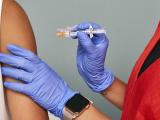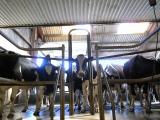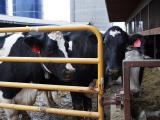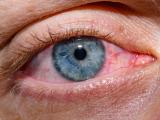Jun 28, 2010
Copper oxide in respirators helps kill human, avian flu viruses
Researchers who impregnated N-95 respirators with copper oxide found them to be effective against human and avian flu without altering their physical barrier properties. Both treated and untreated N-95s effectively filtered out influenza viruses; however, the number of viruses left on the outside of the copper-oxide–treated respirators was significantly lower (greater than 2.88 log lower for seasonal H1N1 and 3.13 log for avian H9N2). The authors conclude, "The use of biocidal masks may significantly reduce the risk of hand or environmental contamination, and thereby subsequent infection, due to improper handling and disposal of the masks."
Jun 25 PLoS ONE study
Study: Febrile seizures slightly higher with quadrivalent MMRV vaccine
Though the risk of febrile seizures is low for all types of measles vaccine, the combination vaccine for measles, mumps, rubella, and chicken pox (MMRV) is double that of separate vaccines (MMR and varicella) administered in toddlers on the same day, according to a Kaiser Permanente study published today in Pediatrics. The US Centers for Disease Control and Prevention (CDC) funded the study, which included 459,000 1- to 2-year-olds from across the nation, including those in the Kaiser and other managed care organizations in the CDC's Vaccine Safety Datalink project. Before the vaccine was licensed in 2005, studies noted higher rates of fever and rash in this age-group. The higher risk of febrile seizures in today's study was evident 7 to 10 days after MMRV vaccination, but the researchers found no increased risk for any measles vaccine beyond 10 days. In a Kaiser Permanente press release, lead investigator Nicola Klein, MD, PhD, said providers should tell parents about the slightly higher febrile-seizure risk for the MMRV vaccine, but should balance the information with the message that the risk is low—less than 1 per 1,000 injections—for any measles vaccine. The CDC recommends either vaccine for this age-group but advises families without a strong preference for the MMRV vaccine to opt for separate vaccines. It also urges clinicians who administer the MMRV version to discuss the risks and benefits with families.
Jun 28 Kaiser Permanente press release
Cases rise in Salmonella outbreak linked to frozen dinners
Federal health officials said they have received 7 more reports of Salmonella serotype Chester infections with suspected links to ConAgra's Marie Callender's brand Cheesy Chicken and Rice frozen meals, raising the total to 37, according to a Jun 25 CDC update. Three more states reported patients sick with the outbreak strain, bring the total to 18 affected states. Of 19 patients with available medical information, 7 (37%) were hospitalized. No deaths have been reported. The company recalled the frozen dinners on Jun 17. A day later the Minnesota Department of Agriculture said it had found the rare outbreak strain in an intact package of the recalled dinners from the home of a sick patient. The CDC said it and other agencies are still investigating the multistate outbreak.
Jun 25 CDC update
Study finds chikungunya more common with Rh-positive blood type
Researchers in India studied 1,500 blood donors, among whom 513 had previously had been infected with the chikungunya virus, and found infection to be significantly higher among those with Rh-positive blood. The incidence was 2.8 times higher in those with Rh-positive type A blood compared with Rh-negative type A, 1.7 higher with type B-positive, 3.0 with type AB-positive, and 2.2 with type O-positive. The scientists also found that those older than 30 were more likely to be infected with the mosquito-borne disease, and men were 1.3 times more likely to contract chikungunya than were their female counterparts.
Jun 25 Virology Journal abstract


















